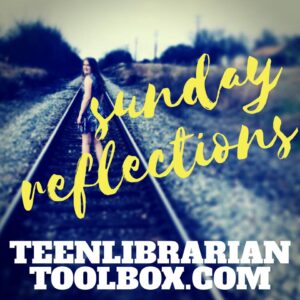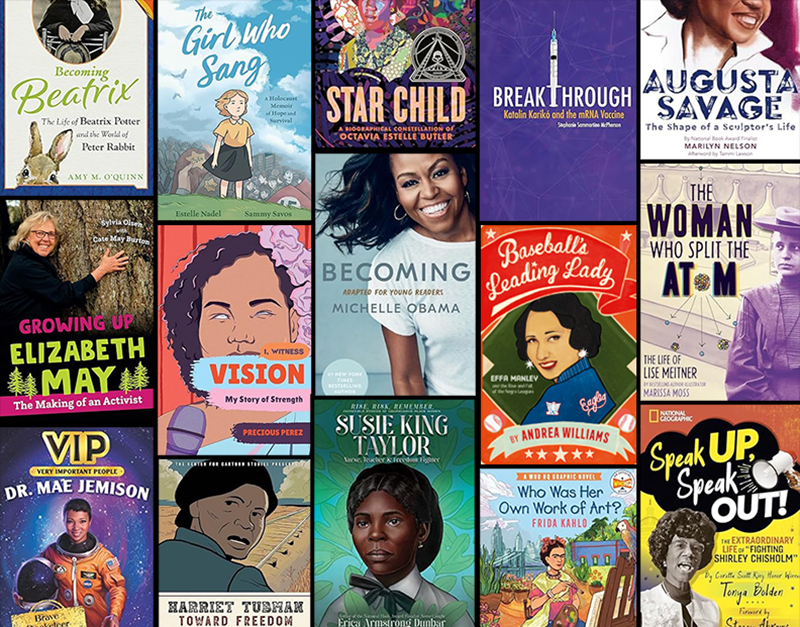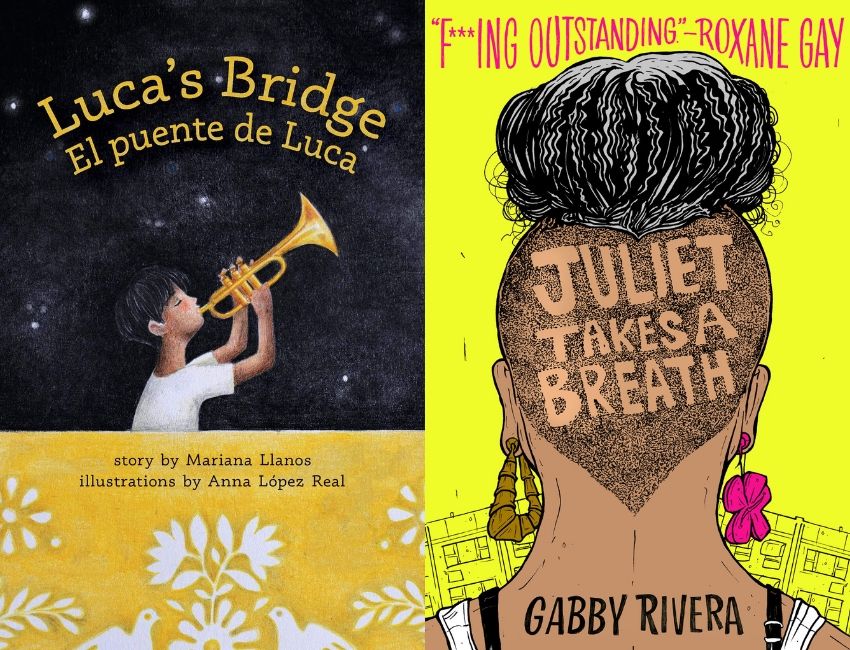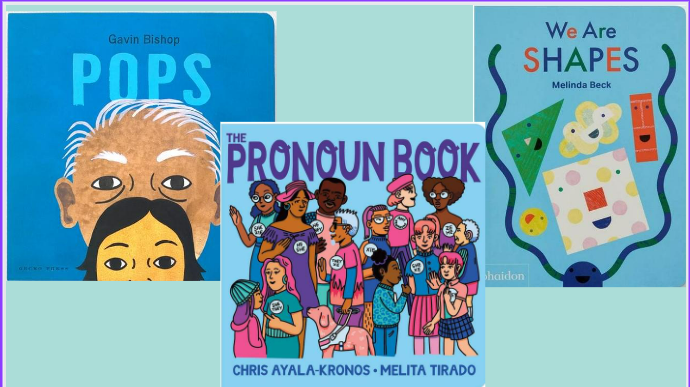Sunday Reflections: When Darkness Means You Can’t Read – Reflections on Mental Health and Reading
TRIGGER WARNING: This post discusses depression, anxiety, mental illness and suicide
Recently, Time magazine reported that less 1/3 of teens don’t read for pleasure. At the same time, a lot of YA/Teen librarians are looking at their circulation statistics and wondering why they’re going down. I did a completely informal and unscientific Twitter poll, and about half of the 88 respondants indicated that their circulation stats were going down. This was not surprising to me because it’s something that I see a lot of my peers talking about and working to fix.
There are a lot of possible reasons as to why. For one, we know that more teens are reading digitally and these circulation statistics aren’t counted in traditional ways. If you use Hoopla, for example, they don’t separate YA books out in their reports. But we know that a lot of teens are migrating to digital content, both ebooks and audiobooks. In addition, a lot of teens are abandoning traditionally published fiction and embracing fanfiction on forums such at Wattpad. It’s not that teens aren’t reading, they’re just reading differently. And of course, we can’t ignore that a lot of teens are spending more time engaged with social media just as adults are.
ADVERTISEMENT
ADVERTISEMENT
In just the five years between 2010 and 2015, the number of U.S. teens who felt useless and joyless – classic symptoms of depression – surged 33 percent in large national surveys. Teen suicide attempts increased 23 percent. Even more troubling, the number of 13- to 18-year-olds who committed suicide jumped 31 percent. (Source: http://theconversation.com/with-teen-mental-health-deteriorating-over-five-years-theres-a-likely-culprit-86996)
But I would like to suggest that another reason for the decline in reading pleasure would be the increase in mental illness. Statistically, we are seeing a growing number of teens report episodes of depression and anxiety. The Center for Disease Control reports that incidents of depression, anxiety and suicide having been steadily rising for teens, and I think this is a significant issue that needs to be addressed for a lot of obvious reasons, but also because I think it affects reading.
I am an adult human who struggles with depression and anxiety. I am prone to panic attacks and have some serious moments of suicidal ideation. As such, I find myself involved in a lot of online forums with others who struggle with these same issues. One of the things that seems common for a majority of us is that when we are in the midst of a depression or anxiety spiral, reading is hard. Full, immersive reading that requires a type of physical and emotional investment can be hard for people struggling with mental illness. Let me explain.
For a lot of us with depression and anxiety, the most basic of functions can require an amount of energy that can be hard to muster. Your body can feel heavy, weighed down. You’re tired a lot. And if you are in an anxiety spiral, there is a lot of negative self talk that is happening in your head that takes a very dominant position. All of this is a type of clutter in the mind and body that makes everything else so much harder. So your goal is to survive and, if possible, dull the static noises inside of you. For me, and many others like me, scrolling through social media and looking at pictures or reading fluff headlines while watching fluff tv in the background can sere as a means to try and help drown out the noises. It’s a type of survival technique to help get you through the moment. I personally find that Food Network or mindless comedies are great for this. They’re not heavy, they don’t require invested attention, and the fluff of it helps me to cope. And the act of scrolling and reading on the Internet takes up a space that darkness is trying to occupy.
These are coping techniques. I’m not saying that they are healthy ones, but I find them to be employed by a lot of my fellow depression and anxiety sufferers. For many of us, there are periods of time when reading for pleasure is just simply not an option.
In the height of my worst depressive episode, I went three months without being able to read a book. I typically read about 3 books a week, but there are often times when I can read no books at all because I can’t get my mind settled enough to commit to the act of reading. I have reason to believe that I am not the only person that this is true for.
Yes, it is different for some people and for them, reading is the escape that they need. Reading can be the coping mechanism that some need while for others it is an insurmountable hurdle. No two people struggle with the same mental health issues in the same ways. But I think it is important that we acknowledge two things when considering a decline in reading:
1. We live in a world where many people are facing increasing struggles with depression and anxiety.
2. For some people, un-managed mental health issues can result in the loss of the ability to read for periods of time.
I believe that it is important that we talk more about and provide better treatment and support for mental health issues in our world. I also think if we truly want to explore things like education and reading for pleasure, this is another reason we need to look into mental health more closely. Not every teen who chooses not to read is struggling with mental health issues, but I believe that some of them are and recognizing that will help us better understand the problem and get us talking about mental health, coping strategies, support and treatment. What if part of the reasons teens are reading less is because they are hurting more? It’s a question we should investigate.
Filed under: Sunday Reflections
About Karen Jensen, MLS
Karen Jensen has been a Teen Services Librarian for almost 30 years. She created TLT in 2011 and is the co-editor of The Whole Library Handbook: Teen Services with Heather Booth (ALA Editions, 2014).
ADVERTISEMENT
ADVERTISEMENT
SLJ Blog Network
One Star Review, Guess Who? (#202)
This Q&A is Going Exactly As Planned: A Talk with Tao Nyeu About Her Latest Book
Exclusive: Giant Magical Otters Invade New Hex Vet Graphic Novel | News
Parsing Religion in Public Schools
ADVERTISEMENT








